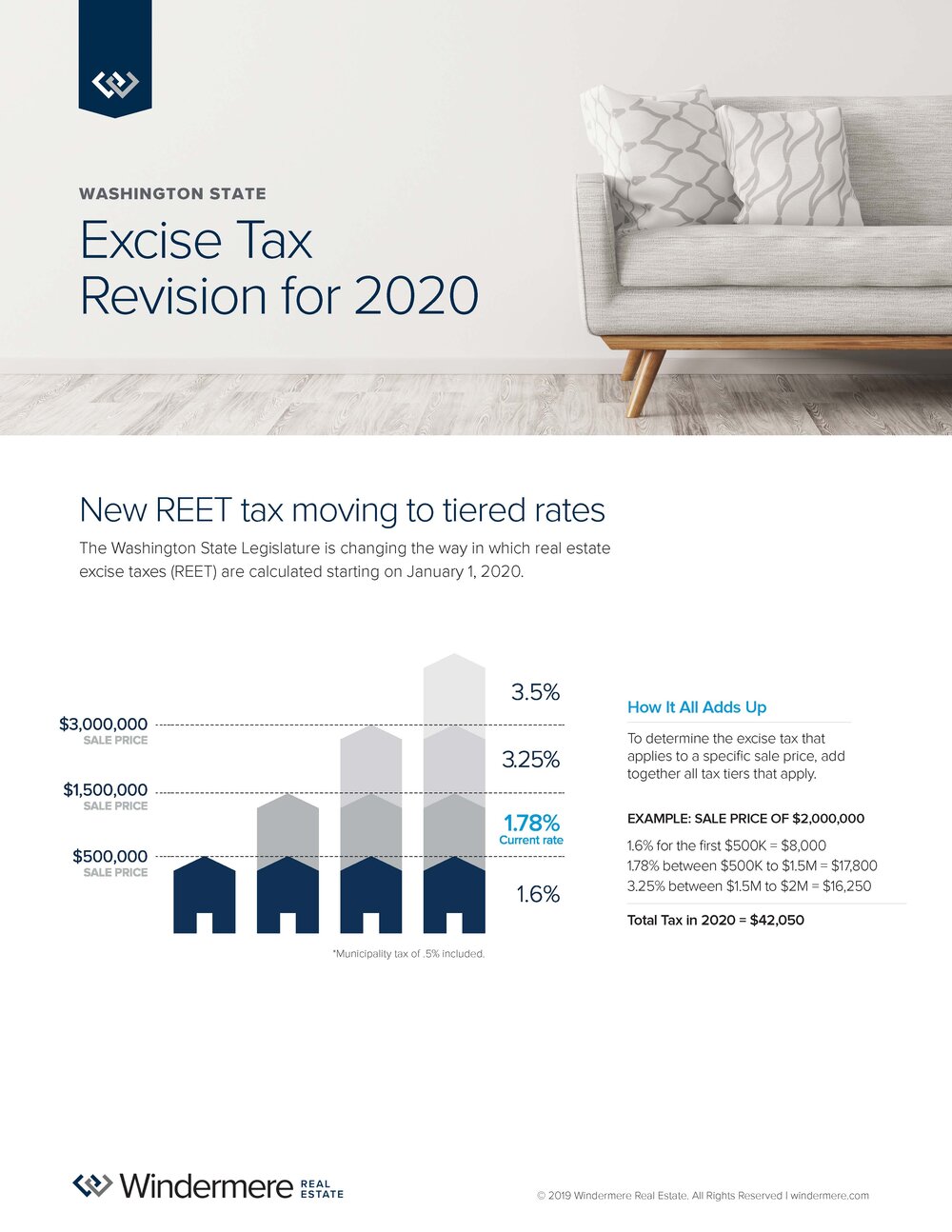The Washington real estate excise tax, otherwise known as REET is faced changes January 1, 2020. What are the changes and how will it affect you? If you are planning on buying, selling, or transferring real estate, these are questions you need to know the answers to. This is your guide to how REET is changing and everything you need to be aware of in 2020.
What is the Real Estate Excise Tax?
The real estate excise tax (REET) is simply a tax on real estate when it is sold or interests are transferred. The seller of the home or piece of property is typically the party responsible for paying REET. However, this is a mandatory tax that the buyer is obligated to if the seller doesn’t pay. REET must also be paid when 50% or more of controlling interests are transferred to a different party. In cases where interests of real estate are transferred, the person transferring their share is liable for the tax.
What Changes are Being Made to the Real Estate Excise Tax?
REET is facing monumental changes come the first of the year. The most important change to be aware of is the fee structure. There will no longer be a flat rate percentage for REET. Instead there will be a graduated tier that is as follows:
- Real estate sales of $500,000 and below will pay 1.60% in REET
- Real estate sales between $500,001 and $1,500,000 will pay 1.78% in REET
- Real estate sales between $1,500,001 and $3,000,000 will pay 3.25% in REET
- Real estate sales $3,000,001 and above will pay 3.5% in REET
It is important to mention that the municipality tax of 0.50% is included in the above rates.
Exemptions
Agricultural real estate and timberland are exempt from the new tiered structure. Real estate sales on these two types of properties will continue to remain at 1.28% for REET.
Controlling Interest Transfer Changes
The transfer period will be extended from 12 months to 36 months. The second change is that any transfers of 16% or more will have to be reported during the annual corporate renewal cycle.
How Will REET Changes Affect You?
The changes will have significant impacts on both the sale of real estate and the transfer of controlling interests. Concerning the sale of real estate, valuable properties will see a significant tax hike. Even though the seller is responsible for paying REET, buyers need to beware of purchasing properties with a hidden tax lien for failure to pay REET. As the owner, you may very well be responsible for the unpaid tax.
In order for REET to apply to a controlling interest transfer, 50% or more of the interests must be transferred. However, REET doesn’t apply to just the percentage of interests transferred. It actually applies to 100% of the property’s value.
The Bottom Line on the New REET Changes
How much REET affects the sale of real estate will in most cases depend on the value of the property. Sellers of more valuable properties will feel the changes more than sellers in the first two tiers. Controlling interest transfers are in the same boat as property sellers, meanwhile, agricultural and timberland properties will not feel the effects at all.
If you are buying, selling, and transferring real estate it is important to stay in the know on all changes concerning the real estate transactions. Send me a message to help navigate the changes in the market and get you the most from your next real estate transaction.
This post originally appeared on the RainerTitle.com Blog.

 Facebook
Facebook
 X
X
 Pinterest
Pinterest
 Copy Link
Copy Link




